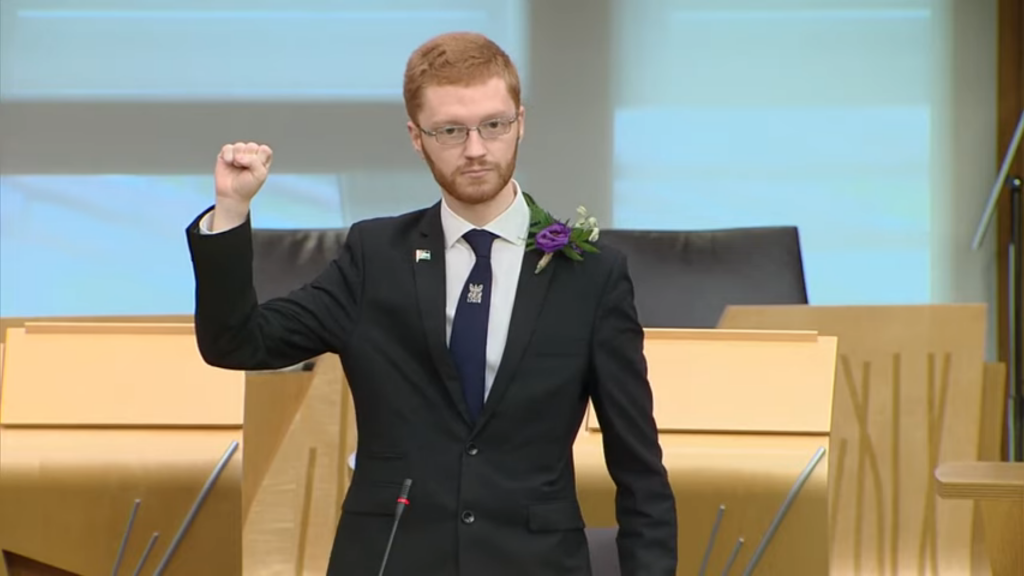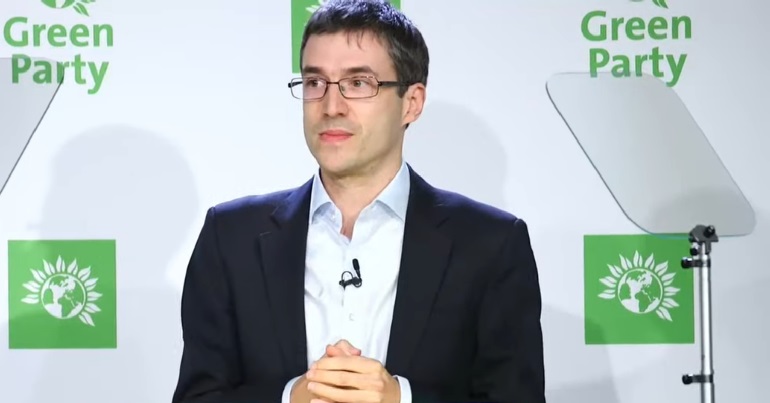Labour won’t forge a Green New Deal alone

The launch of a grassroots Labour for a Green New Deal group is the latest exciting policy development to come out of the party. It shows the incredible range and ambition on display at The World Transformed is being put into action. The front bench is even talking the talk, with the declaration of an ‘environment and climate emergency’ heaping pressure on the Conservative government as well as Labour-held councils. It is evidence that the party is increasingly shifting away from Old Labour as much as New Labour.
But if Labour begins to ‘get’ the environment – if it understands the extent to which our economy and society is destructive as much as it is unjust – what place is there for the Greens? Once the home of “big, bold policies”, through the wilderness decades for the Labour left and during the great Green Surge, torpedoed by first-past-the-post in 2015, that refrain now sounds tired. Labour is now driving forward the shorter working week, for example, both from its upper echelons and grassroots. Could it do the same on a Green New Deal? One of the new group’s founders thinks so, calling other progressive parties irrelevant.
For those who have for years fought for and stood on what is essentially a comprehensive and bottom-up Green New Deal platform – the Green Party manifesto – this is more than a little galling. No doubt it’s an exciting time to be a Labour activist amidst such momentum. But the dismissal is unfair and unwise. Those part of the new charge for Labour radicalism on climate should recognise the uphill battle they face in their own party, and the value of the movement that will exist beyond it.
Labour won’t cut it
Firstly, the radicals’ own party is far from what they want it to be. Claims to ideological purity are useless, and few serious Greens would bother. But ours is a narrower church. Labour’s ignorance and short-sightedness on climate justice is well-documented – from airport expansion to fossil-friendly councils – and the reason these failures are used to chastise the party so often is because if there was even a collective ounce of cognisance about the true scale and urgency of climate breakdown then they wouldn’t occur. The Heathrow debacle is a particularly useful indicator, as any ‘just transition’ arguments fall limp here. The third runway is of course about expansion – not retention – of an industry, and one set to overwhelmingly benefit the frequent-flying wealthy. The decision not to whip on the vote also revealed the supposedly climate-friendly leadership’s willingness to succumb to face-saving politicking when faced with a rebellious PLP. Judging by the list of 119 supporting Labour MPs, this rebellion was driven by centrist denial as much as union sympathy.
A more recent example of the chasm dividing the Labour leadership from climate sense is a 68-page industrial strategy paper commissioned by the party and published in January, which doesn’t mention climate once. Emissions are referred to only in the context of a recommendation to exempt heavy industry from the effect of carbon taxes on electricity prices. If this is still the best advice Labour can get on protecting workers in 2019, it has a very long way to go.
Labour for a Green New Deal will call itself an insurgent movement of course, seeking to change all this and destroy the absurd dichotomy between jobs and climate that clearly grips so much of the party. But in the meantime it would do well not to dismiss those who are in a different one because of it. Climate activists must reckon with Labour as it is, not as they would like it to be.
Thinking bigger
There are also more fundamental differences between even the most radical of labour and green politics. Greens look far beyond mere decarbonisation. The oft-criticised scale and scope of the party’s ‘Policies for a Sustainable Society’ are testament to an awareness that environmental justice is not just about replacing oil fields with wind farms, petrol cars with electric ones. We have been forced, by the facts, to think bigger – but the vision is unexceptional. “A system based on inequality and exploitation is threatening the future of the planet on which we depend…” begins the party’s philosophical basis. “A world based on cooperation and democracy would prioritise the many, not the few, and would not risk the planet’s future with environmental destruction and unsustainable consumption.”
It is true that the environmental movement generally has struggled to build en masse, to extricate the utopia (or dystopia) from the transition, and to take on the uniquely suffocating anti-politics of incrementalism and individualism championed by businesses, governments and mainstream NGOs for decades. At the same time however, the ecological perspective that underpins this struggle has produced greater honesty about the degree of material sacrifice that global climate justice necessitates for the UK, and for the West. Fidelity to economic growth, aversion to lifestyle change, reliance on technological solutions and neglect of other ecological crises are not directly in the target sights of a Green New Deal. Yet together they entirely hobble its capacity to deliver a genuinely sustainable society. These are long-term challenges only Greens seem prepared to confront.
Building a movement
This is not to demarcate needlessly where divisions between the movements exist or may arise. In fact it is the opposite. One major success identified in the Green New Deal presented to the US Congress by Alexandria Ocasio-Cortez is the level of clear, popular and purposeful expression and attention it has achieved without yet getting to the level of prescription that would require premature choices on policy. We can replicate and advance this movement in the UK. But in order to do so there must be mutual understanding that any new hegemony of the left, as detailed in Nick Srnicek and Alex Williams’ Inventing the Future – or ‘restoration story’, as in George Monbiot’s politics of belonging – needs both an “ideological ecology” and an “institutional infrastructure”.
By necessity this goes beyond one party and all parties. The movement will – whether Labour like it or not – inspire those who, though they may not speak the language of socialism, are ready to support to the hilt whatever level of redistribution of power, money and time is necessary to confront this crisis. As Gurpreet Bola and Chaitanya Kumar argue in their case for an intersectional Green New Deal, “the weight of science and the pressure of social injustices … can speak to a much larger base than the ideological tropes that segregate us”. The divestment movement knows this; Extinction Rebellion knows it; the school strikers certainly know it. At a recent panel event in Parliament organised by the New Economics Foundation, even Rebecca Long-Bailey, speaking to the importance of cross-party cooperation – while sitting alongside Caroline Lucas – appeared to recognise it.
Those on the Labour left already acknowledge how essential pressure from below would be under a Corbyn government. But it is a fantasy to think that it would be sufficient for this to come from within one party (as anyone with experience in council politics can attest). While the UK’s electoral system mandates unnecessary adversarialism, an urgent shift on climate action requires the opposite.
The climate crisis is too big – and British electoral politics too tainted – for party manoeuvring to be put towards anything other than widespread support for systemic upheaval. Labour for a Green New Deal’s founding is a crucial and overdue step change, with the potential to build from below a powerful voice for climate action at every level of the labour movement. But Green members and activists can say confidently in response: if you fear dilution, you need not fear it from us. And if a broader social movement is to be built, and transformative change to be achieved, you must not act alone.
This article was first published by The Ecologist.




Leave a Reply